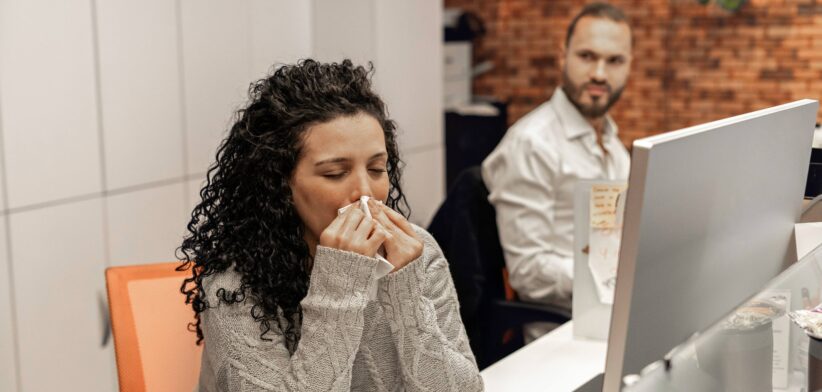Australians are increasingly turning up to work sick, despite growing awareness of the importance of health and wellbeing.
A new study by recruitment agency people2people found 63 percent of workers polled admitted to working while sick, up from 60 percent last year.
Head of HR Solutions at the agency Suhini Wijayasinghe said the data showed Aussies were turning up to work unwell due to a lack of sick leave or feelings of guilt.
“Some may assume workers take advantage of sick leave, but the numbers tell a different story,” Ms Wijayasinghe said.
She said in 2024, 39 percent of those surveyed took three or fewer days of their 10-day entitlement, but in 2025, that figure had jumped to 60 percent.
“The proportion of workers taking 10+ sick days had nearly halved, from 35 percent in 2024 to just 22 percent in 2025. This signals a worrying trend.
“Employees are pushing through illness, likely due to leave pressure, guilt or workplace culture, and that doesn’t help anyone in the long run.“
Ms Wijayasinghe said even when working from home, the expectation to stay “productive” while unwell could prolong recovery, reduce overall effectiveness, and contribute to a toxic cycle where rest was devalued.
“We need to remember that working remotely is not a substitute for genuine rest. If you’re sick, you need to stop, not just shift locations.”
Ms Wijayasinghe said beyond simply running out of leave, the poll asked why Australians didn’t take sick days, with 22 percent saying they felt guilty, 18 percent stating they were too busy and 16 percent fearing judgement.
“This level of emotional resistance to sick leave is deeply ingrained. The data shows that many employees are too anxious or overwhelmed to take the rest they need, and that’s contributing to burnout and increased illness across teams.”
She said flu vaccination was still not widespread despite employee support.
“Flu vaccinations are a proven preventive measure, yet actual uptake remains low.”
Ms Wijayasinghe said 84 percent of workers said they support workplace flu vaccination programs and believed employers should offer them, ideally free or discounted.
“However, only 36 percent received the flu vaccine in the past 12 months, with another four percent saying they meant to but forgot, leaving 64 percent of the workforce exposed to the virus this season.”
She said with this winter potentially one of the worst in recent years there was an opportunity for workplaces to create real change in how they treated health, recovery, and the pressure to “push through”.
“Leaders need to set the example by taking sick leave themselves when needed, and by supporting their teams in doing the same.
“The cost of ignoring it is far greater than the cost of a few days’ absence. Long-term, a well-rested workforce is a more productive and loyal one.”
She encouraged employers to promote a guilt-free sick leave culture, offer or subsidise flu vaccinations, encourage early leave-taking and communicate sick leave procedures clearly.
“And employees should use their leave when unwell, speak with their manager if leave has run out, get vaccinated early and know their rights and procedures.”








